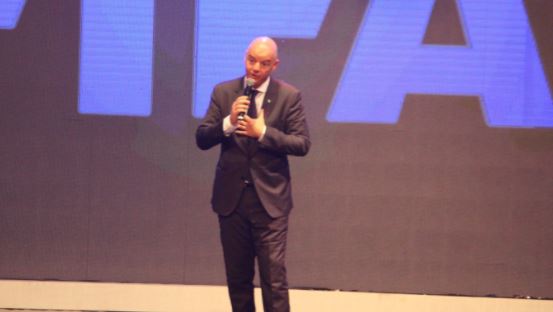A FIFA task force has suggested massive changes to transfers after a report found “multiple failings” in the current system.
The proposed system will use an algorithm to calculate transfer fees, as well as a luxury tax and a limit on the number of players that can be loaned.
According to a FIFA report, the current system has resulted in “various abuses at the expense of young players and the integrity of competitions”.
The report said an excessive transfer market was driving “unsavory practices that could lead to the exploitation of gamblers”.
Advertisement
“The transfer system seems to have turned into a speculative market, which is not fair for the football clubs or grassroots that are the foundation of professional sports,” says the report.
After his election in 2016, Gianni Infantino, FIFA president, said a reform of the transfer system was one of his priorities and has since voiced his concern about the increase in transfer fees.
The report states that “mechanisms to achieve transparency and objectivity” in the calculation of transfer fees should be considered.
Advertisement
It came up with several ideas to lower fees, including the use of an algorithm or set of mathematical rules to calculate the value of players.
The task force, set up by Infantino in November, said Swiss-based CIES Football Observatory has already developed an algorithm to “scientifically estimate transfer values and probabilities”.
Another idea put forward was to levy a luxury tax on excessive transfer expenses and use the money to create a solidarity fund.
The report also recommended limiting the number of player loans a club could make in a season.
Advertisement
The report said the current lineup “sometimes prevents young players from fully developing their talent,” adding that an unnamed club had borrowed 146 players between 2011 and 2017.
It also proposed a restriction of the troop sizes. The report states that “the stockpiling and subsequent loaning of players, especially young players, may be detrimental to their development because they are unsure as a loan”.
Advertisement
Add a comment







